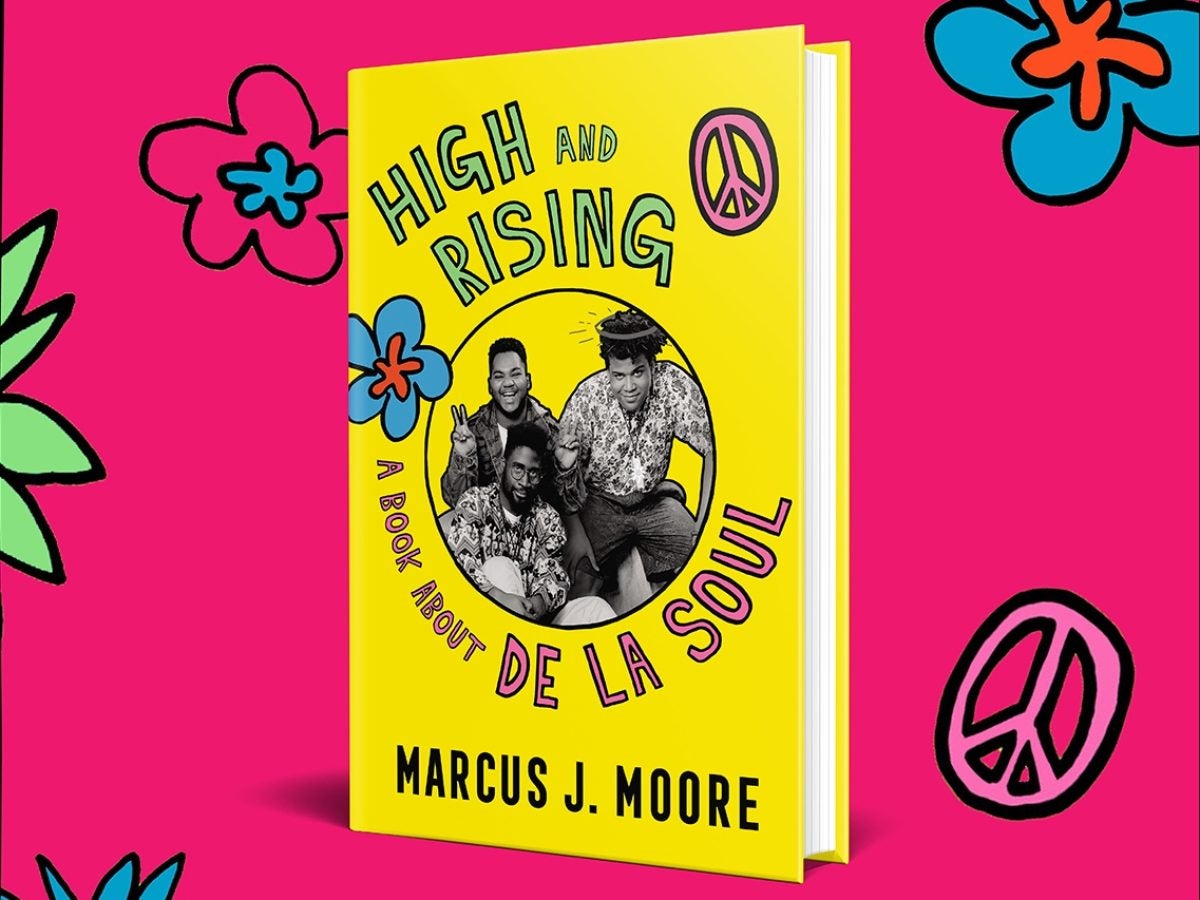
When Marcus J. Moore set out to write High and Rising—a cultural biography of De La Soul—he wasn’t only documenting the journey of one of hip-hop’s most influential groups. He was also celebrating the humanity of three Black men who dared to be different in an industry that often demands conformity.
This ethos of self-acceptance and creative exploration lies at the heart of the iconic collective’s legacy. Formed in Long Island in 1988 by Kelvin “Posdnuos” Mercer, Dave “Trugoy the Dove” Jolicoeur, and Vincent “Maseo” Mason, the trio redefined what hip-hop could be. Their 1989 debut, 3 Feet High and Rising, was a masterpiece that embraced positivity, humor, and experimentation—a stark contrast to the gritty realism dominating the genre at the time.
Moore’s connection to De La Soul goes far beyond admiration. As he worked on the book, he found himself revisiting his own journey as a “left-of-center” Black kid who felt seen in their music. “When De La came along, they felt more attainable to me,” he explains. “They just looked like my older cousins. They let me know that I could like hip-hop music but also get into jazz, R&B, and gospel. They made it cool to be a multifaceted Black person.”
High and Rising isn’t just a biography; it’s a love letter to the group’s enduring impact on music and culture. Moore meticulously traces their rise, from the groundbreaking success of their first album, to the creative shifts in De La Soul Is Dead and Stakes Is High. Along the way, he reveals the challenges the group faced, including industry pressures, legal battles, and their own tendency to underrate themselves.
“They were scarred early,” Moore says, reflecting on the group’s struggles with record labels. “After a while, that builds calluses. They started to underrate themselves and think, ‘Let me just stay low and out the way,’ not realizing that they were hampering their own legacy.” Despite these tribulations, De La Soul’s commitment to creative evolution ensured their longevity. “With every album, they would add these very new and subtle creative wrinkles,” Moore notes. “That’s the way you stick around in any industry—you stick to your sound, but you do something a little bit different each time to not lose your fan base while gaining new fans.”







The release of the book paralleled the renewed interest in De La Soul, spurred in part by the group’s catalog finally arriving on streaming platforms in March of 2023. Moore acknowledges the serendipity of these events but emphasizes that his work on the book began long before their streaming return was confirmed. “The timing was more so about the grief surrounding Dave’s passing and my mom’s passing,” he explains. “It encouraged me to lean into celebrating this group as much as I could.”
Jolicoeur’s passing earlier this year added a poignant layer to High and Rising, with Moore approaching the project with sensitivity, weaving personal memoir into the narrative to create a work that honors both the group’s legacy and the human connections that shaped it. As the first book dedicated to De La Soul, High and Rising stands as both a tribute and a testament—a reminder that their story isn’t just music history; it’s a vital part of Black history, world history, and our history. Through their creativity and courage, these three artists changed the game, and this book ensures their impact will continue to inspire for years to come.
“I want people to read about Black people being regular,” Moore says. “De La made it cool for Black people to be weird and to show love and smile and hug. They taught us that you can be creative, operate with integrity, and still evolve over time.”






